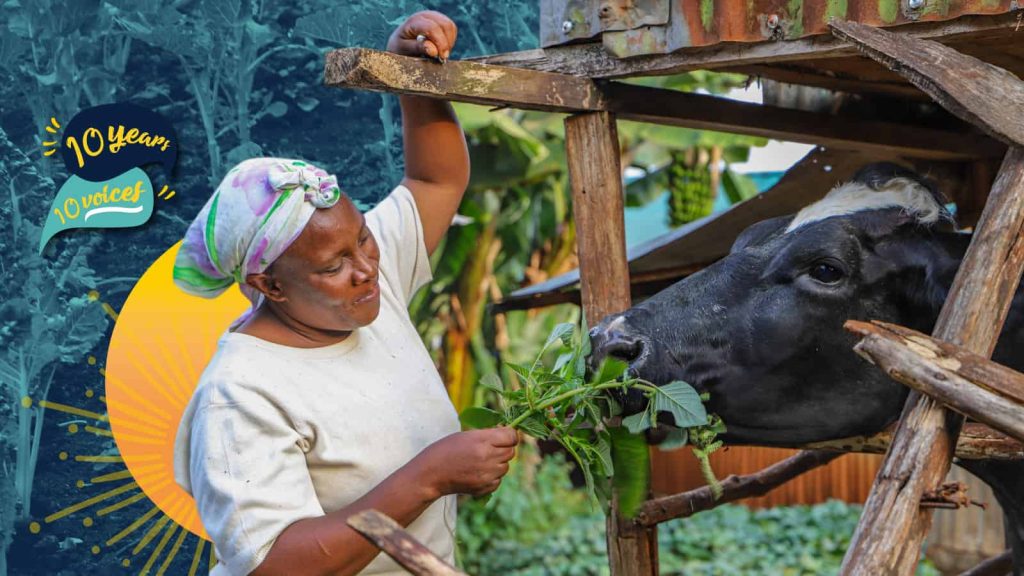For Teresia, farming is a synonym for living. It’s what she’s always known, what she has dedicated her life to. Farming is her home, her work, her family. She lives on a shamba in Githuguri, Kenya, with her husband Francis and one of her sons. They produce coffee, maize, kale, bananas and avocados, among many other things.
Teresia grew up on a farm, met her husband through farming and raised her children in the field, sharing with them the tools and wisdom of many generations of farming in Kenya. Now two of her children live away from home, conducting their own businesses and leading their own lives —and tending to their own farms, of course: “they are farmers just like their parents,” she tells us. The same goes for her third son, who still lives at home with Teresia and Francis and takes part in the farming activities.
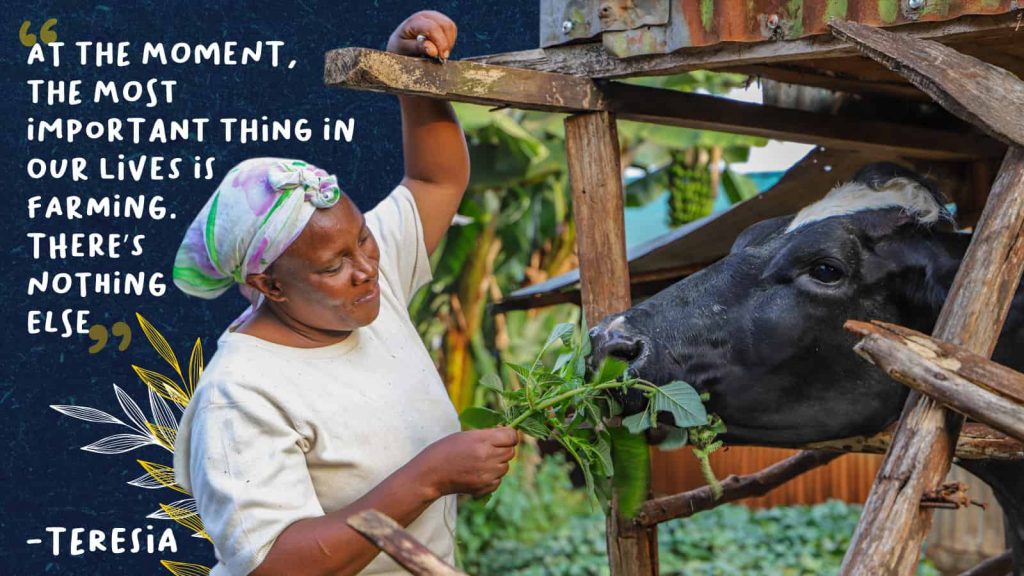
Teresia has been a proud owner of a biodigester since 2018. She first found out about our product when seeing it at another shamba. She saw potential in our technology from the beginning, not only in terms of her farm but also in her life, in the lives of those she loves.
Like many rural women around the world, Teresia was in charge of all things cooking: gathering firewood, heating water, food preparation. Before finding biogas, these tasks meant a great deal of effort for Teresia, not to mention all the time spent on the various activities surrounding cooking with firewood —time and effort that could be best spent on tending to her farm, spending time with her family and building her business.
Now all of that is a thing of the past. “We are really happy about the biogas because when I wake up in the morning, I don’t have to look for firewood to boil water for milking the cows. I just put water on my cookstove and I also make tea using the same biogas,” she tells us. Now her mornings and evenings look different. At the break of dawn, the family gets together to pray and take breakfast. From then on, their days are spent tending to the farm: feeding the cows, feeding the biodigester, feeding the plants with biofertilizer. They spend their day nourishing their small piece of world, taking care of their land, their animals, and themselves.
For her, owning a biodigester has meant opportunities for a healthier, more joyful living. For two years now, she has fed biofertilizer to all of her crops, a practice that she takes great pride in because she can see how much stronger and healthier her plants are —and so do all the people who visit her farm. To her, the great value of organic farming is in the clear improvement of soil and crop health. And the same goes for us: nature gives us so much, and it is truly wonderful to see it thrive. It is such a privilege to have the opportunity to give back! Teresia is now a firm believer in giving back, and cannot imagine farming without organic biofertilizer.
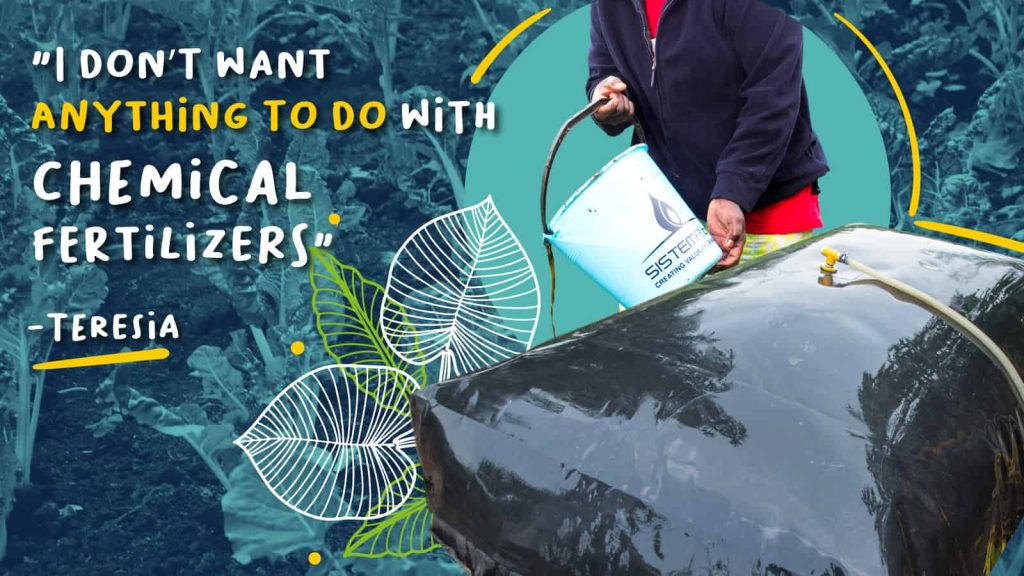
As for her family, her biodigester has also brought unexpected benefits: “life with biogas is very nice because […] if you’re not near, (your husband) will be able to do things for himself. He’ll put his water on the cookstove, he’ll cook his own food. He won’t eat cold food because the biogas is there.” Teresia cares for everyone and everything in her family and on her farm. It is important for her to know that everyone gets what they need, and works hard to make sure that they do. Thanks to her biodigester she can manage to do everything with less time and effort. And, above all, she can have a more balanced workload on the farm and the household with Francis and her son.
One of the key benefits of renewable energies and sustainable practices lies in their capacity for building autonomy. As Teresia has taught us, this goes beyond the general concept of global farmer autonomy: it also has an impact on family dynamics. What was once a great workload for Teresia is now a shared, balanced activity that can be done by anyone in the family. Teresia, Francis, and their son know how to feed the biodigester and how to use the biogas. And when Teresia goes into town, Francis can cook his own meals without worrying about the smoke.
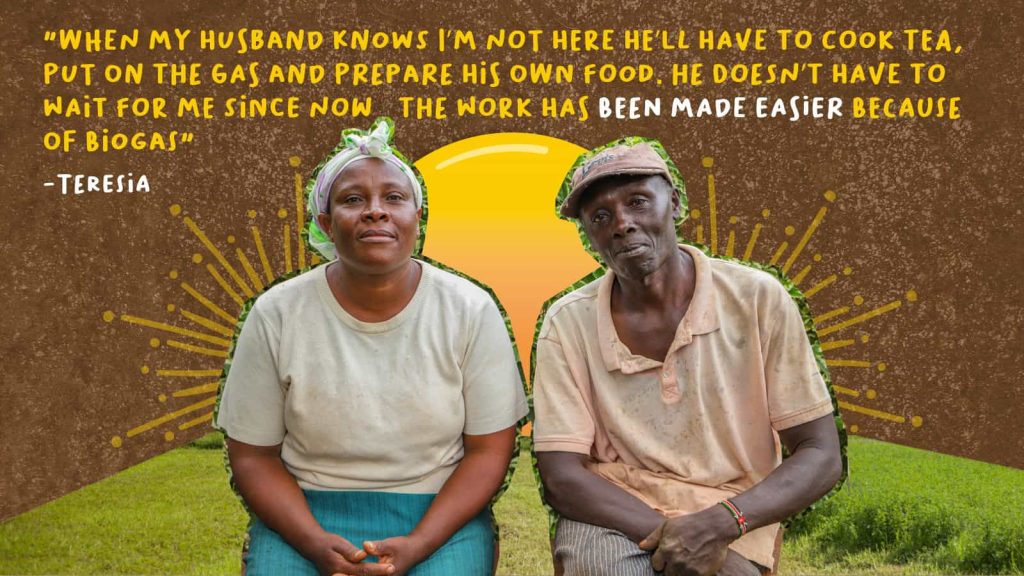
It is no secret to us that investing our time and effort in energetic autonomy for farmers has great potential for changing this world. To us, biodigesters are a tool as any other. And when tools change, the ways in which things are done change as well. For Teresia, this has proven to be true not only in farm work but in care work as well.
While gender equality has moved forward in the past years, there is still much work to be done. And we believe that, as long as care work and household tasks remain gendered, our societies will not be able to reach their full potential. Teresia and her family now have a tool that allows them to take care of farm and household tasks that used to be in her hands only: heating water for bathing, preparing food, making tea, even heating water for milking the cows. And a more balanced workload means a more balanced family life!
Teresia is a farmer, a job that she takes very seriously and does with great confidence. Her farm is her gift to this world, as well as her gift to her family. But it is also a gift to herself, a place where she can nurture her own life by taking care of her crops and her cows. The farm allows her to do what she loves while also providing her with an income, giving her the chance to bring money in and help out in the family economy: “we usually help each other out”, she tells us.
This is why being a part of stories like Teresia’s is such a gift for us at Sistema.bio. Because we get to learn about the little things that all together make up healthy, resilient, dignified, joyful lives for the hardworking families that make up our world.
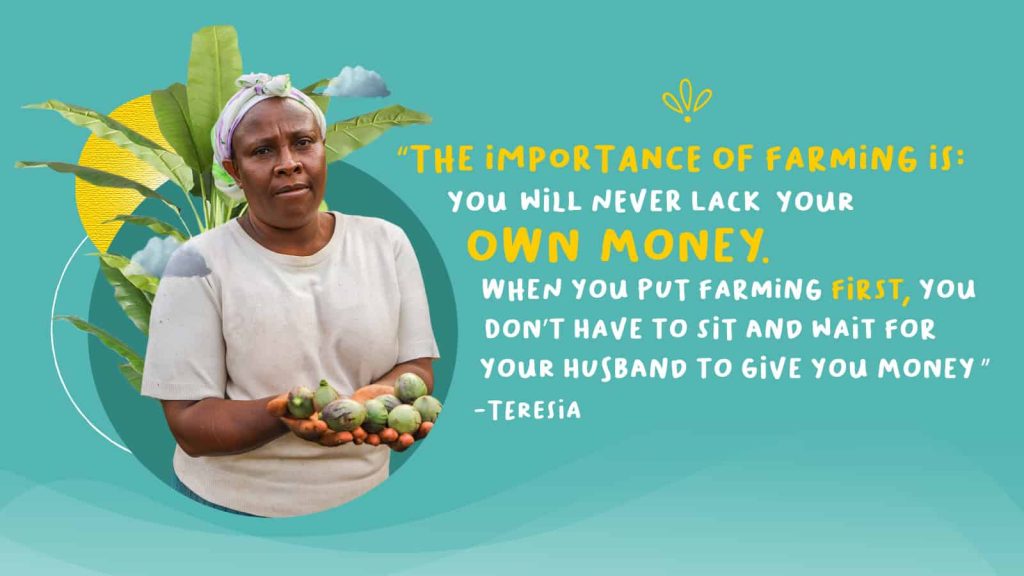
Interview & photographs by Tabitha Nakholi & Monica Mahaga| Text by Elena Coll | Art by Brianda Suárez | Edited by Montserrat Cortez & Xunaxi Cruz
